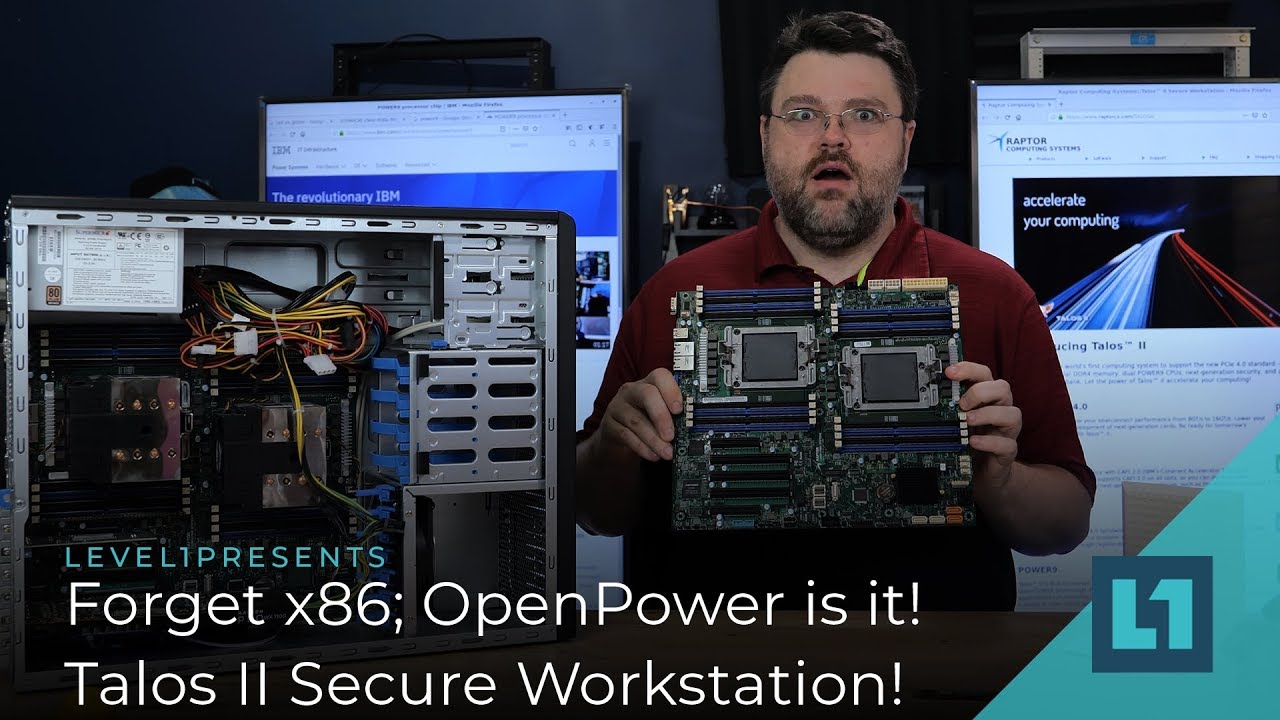https://www.raptorcs.com/TALOSII
I just saw this, even if it is pretty old.
They continue the IMB powerPC architecture.
3mdeb develops coreboot for the architecture.
Here is an interesting presentation
OS Installation is complex, but Linux/BSD with support for ppc64 should work.
The used AMD Radeon Pro WX7100 GPU is pretty open, but the boot code contains blobs.
Just as the NVME controller.
This is a competitor to RISC-V, while the latter is in early steps but is high in trend and developing fast.
I want one but it costs an arm and a leg.
Yeah its pretty crazy
I totally wanted this a bit ago, but couldn’t justify it.
It just costs too much in relation to a Threadripper box, and doesn’t have the same performance. For 5k you get… 4 cores, and while SMT4 is neat, it’s not going to make up for, as an example, the 32 cores a 7970X (which ends up building out at about the same price) has.
It’s kinda only useful if you’re willing to spend a huge amount of money for okay but nothing special performance, need the more open platform aspect, or are doing POWER development.
If it was half the cost, it’d be twice as appealing, but, well, it’s not.
You know it is not about performance but trust, right?
Like, performance is not relevant at all here. It is also performant, but the main factor is that its open.
That’s fair, and you’re not wrong.
That was more of a personal story than an analytical assessment of more open vs closed platforms.
I’d say, though, that the person that doesn’t care about performance AND doesn’t care about price is the rare person, and that the current pricing (which, I’m entirely sure is being driven by having to be in bed with IBM to do this at all) puts it out of the realm of essentially anyone who might be interested that doesn’t have a very compelling reason to need a POWER-based system.
In the video the guy said that it is used a lot in high security contexts.
Imagine a scenario like in this talk where every device is scanned, the entire building is sealed, on springs, in a faraday cage.
It’s infuriating that they refuse to use Power10 that came in 2021, but I understand why they did it.
I think for normal users, something like a normal libreboot Desktop/Laptop would work better and be more cost effective than this.
I thought that the main target users for this is the server owners, but I doubt it would attract them now, especially since the company does not develop new technologies to make their offerings more attractive.
Yes it is pretty damn expensive.
3mdeb would be an alternative for people using servers, but they mainly to IOT and workstations I think.
And, no idea, but I assume there are server mainboards that are supported by Coreboot.
Afaik Google runs all their servers on Coreboot.
I as a mere mortal just spent reviving an “old” Thinkpad 250. I mean it had a 1TB SSHD in it, which never was full, a random old SATA SSD and it runs Xonotic!
That BIOS is 3 years EOL, and has strange settings, like not enabling TPM 2.0 or 2 strange remote management / antitheft services baked in, which could be permanently disabled.
Also disabling everything related to Network on the UEFI helped.




